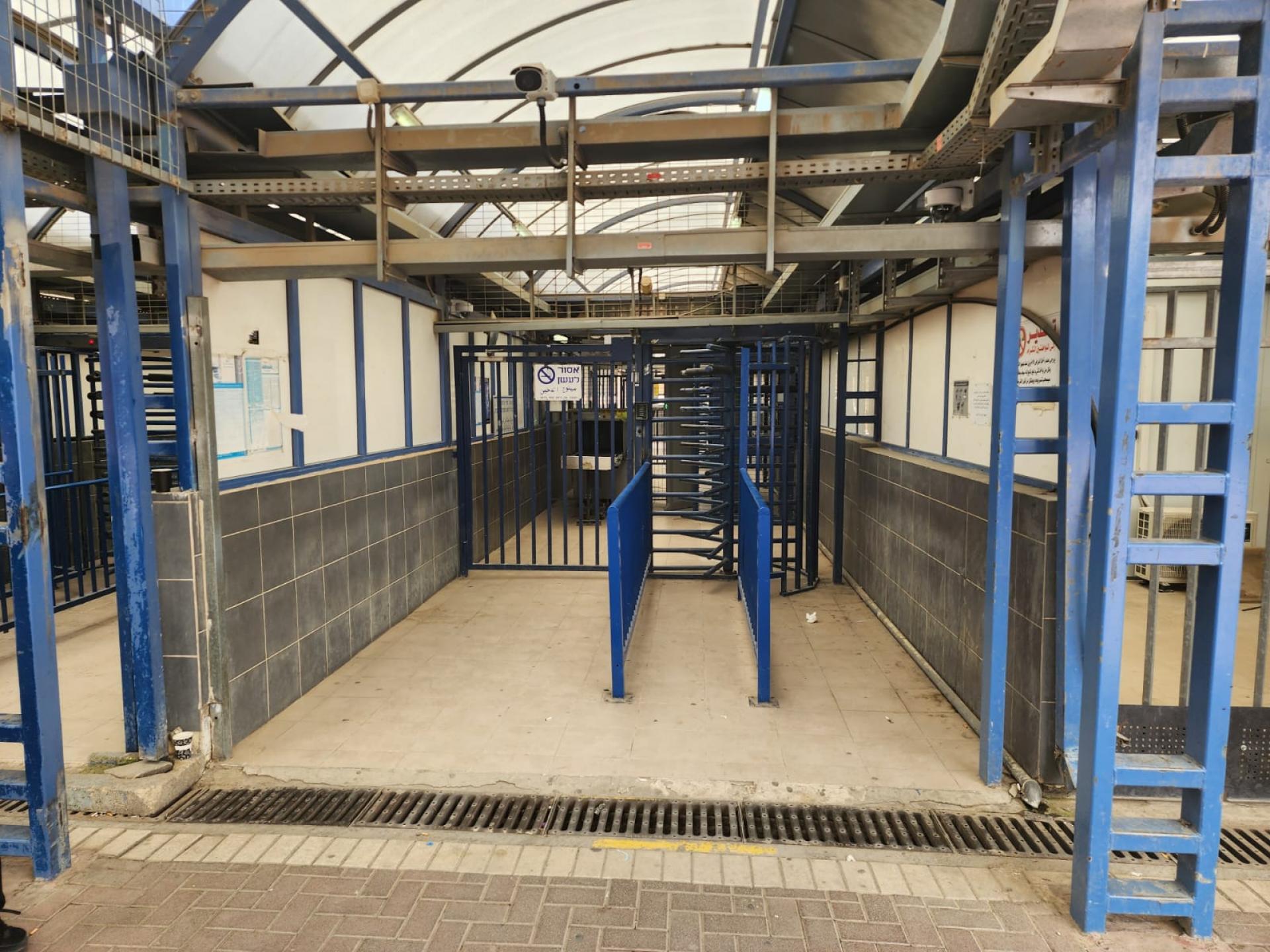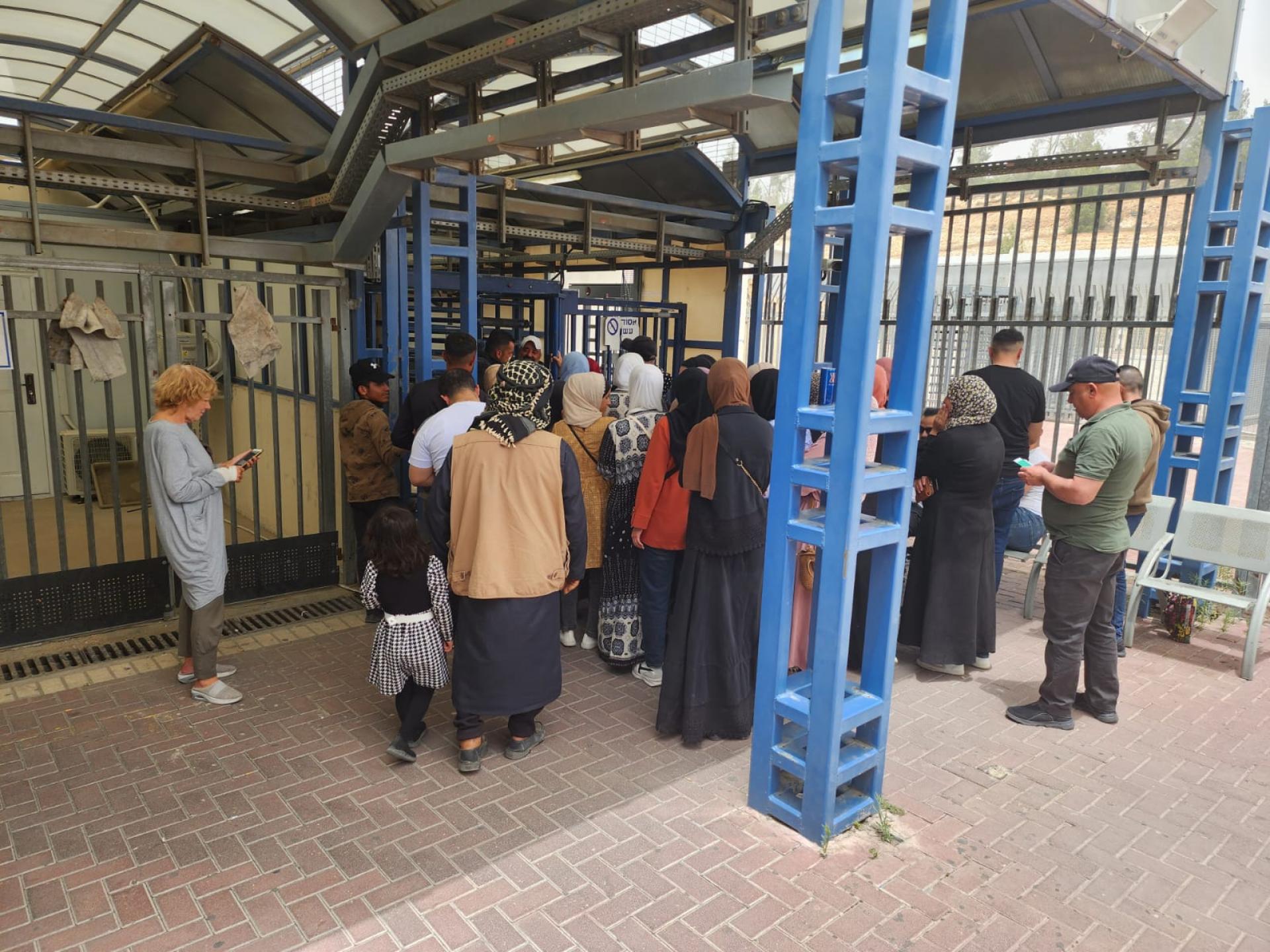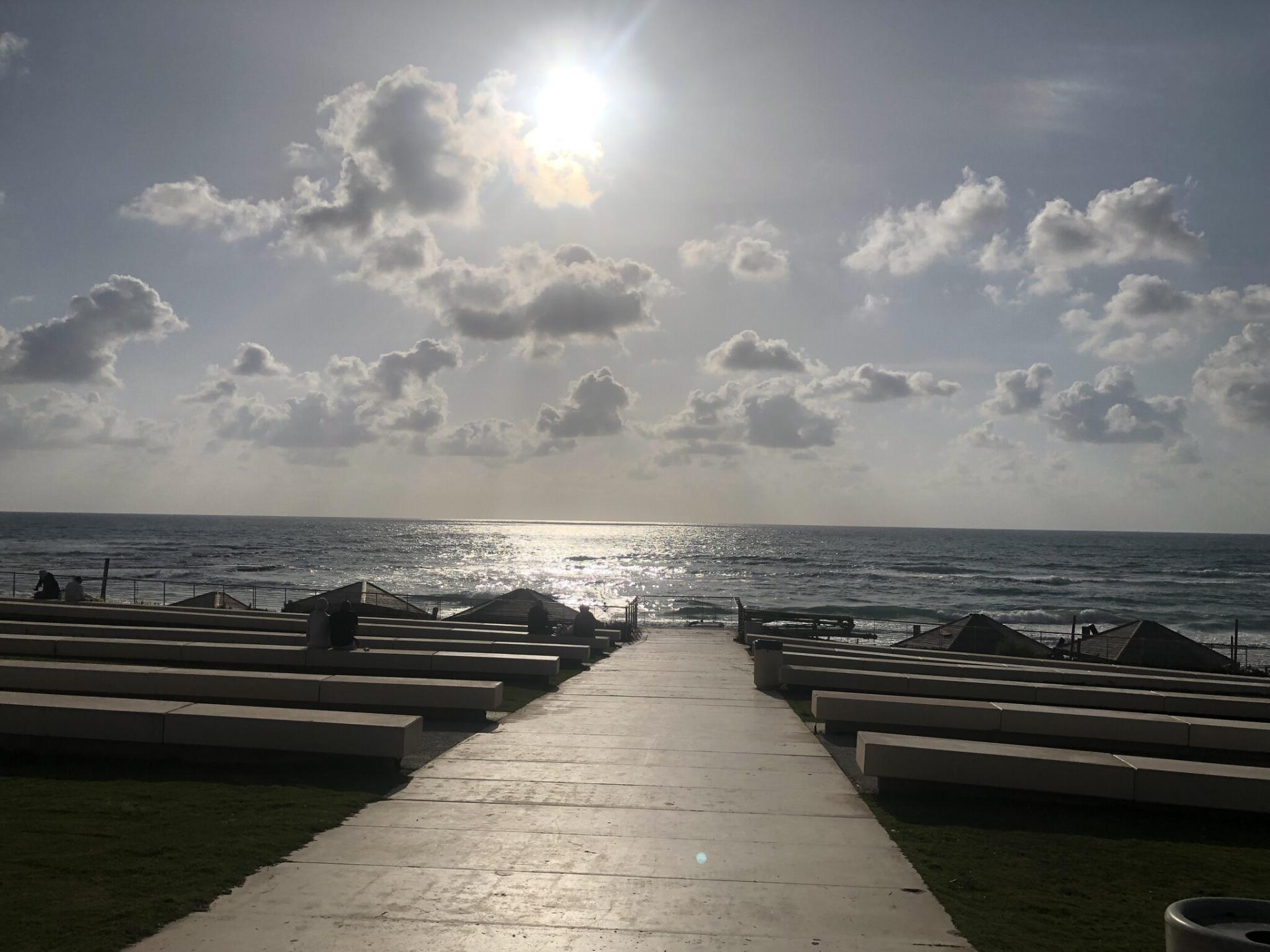Tarqumiya, magnetic cards - new ruling
The draconian ruling that women attending the beach days must now show a magnetic card almost made our beach days project fall through for this summer, beginning June 5.
The emergency fundraiser we organized quickly to collect funds for financing the cost of these magnetic cards for women who cannot afford them and were already listed – saved the project. Within a few days we raised the necessary amount to finance the cards! About 200 donors hurried to pay for mothers of families. (A card costs 130 NIS, and the Palestinian contractor who arranges them takes another 20-30 NIS).
Rachel and Gili, determined Beach Days initiators and activists, organized groups of southern women who came to the Tarqumiya Checkpoint yesterday and helped produce the cards with these donations. About 100 women came! A woman officer of the DCO helped us finish the job. The hurdle was vanquished.
Today we drove to our friend A. who organized a group from Huwarra, En Abous and ‘Ariq. We gave her the donation money to produce cards for her group. En Abous is a village west of the turnabout in the main street of Huwarra.
We were afraid to return to Huwarra after the violence that has been exerted there and in the Nablus area almost daily, the killing of the two settler-colonists and the pogrom that followed, the injured soldier last week and the endless attacks taking place in Nablus.
Our friend M. assured us that the situation there is monitored by soldiers, and that Huwarra stops are all closed now, we shouldn’t worry…
Indeed, driving along the Huwarra main street was a military nightmare. There were concrete posts every few meters, soldiers unsheltered from the sun, fully armed with pointed guns. Between the temporary (?) posts soldiers walk around, their rifles drawn. The entrance to En Abous is blocked with a metal arm of a temporary checkpoint, manned by soldiers.
Shops were opened today after being closed for about a week since the attack on the soldier. But the poverty, filth and shops appearing deserted, black writing on road signs that are no longer legible – all these were saddening and worrisome.
We went into the falafel shop, people were angry. Said their shops and businesses are being closed all the time, the army is everywhere. They were not eager to speak with us.
Talking with our friend M. to validate what we’d seen, he confirmed that this past year has been the hardest, as the Israeli army is even stricter with the Palestinians now. Every stone thrown is followed by shops being closed and arrests, and this happens a lot. Shop owners have deserted Huwarra, for their livelihood has been impacted. The settler-colonists are free to do as they please: curse, attack, and the army supports them. Soldiers stop vehicles on the main road and flying checkpoints and when drivers resist, traffic police is summoned and they are fined. Donations reaching Huwarra have been privately passed on to families whose homes were burnt in the pogrom, but no money has reached the municipality. Nor from the Palestinian Authority.
On our way back we saw new signs: “Next year in built-up Tel Aviv” (take-off on the traditional yearning-for-Jerusalem litany). Is this a warm-hearted preparation to take over Tel Aviv?
We also took goods to an Azoun second-hand shop, which we had not been allowed to enter in recent months because the owners feared for our safety. The village has often been under closure and the villagers would not like to see Jews’ vehicles driving through. A back-to-back meeting takes place at the Nabi Elias town square.
and the villagers would not like to see Jews’ vehicles driving through. A back-to-back meeting takes place at the Nabi Elias town square.
God willing, we’ll get to the beach…



